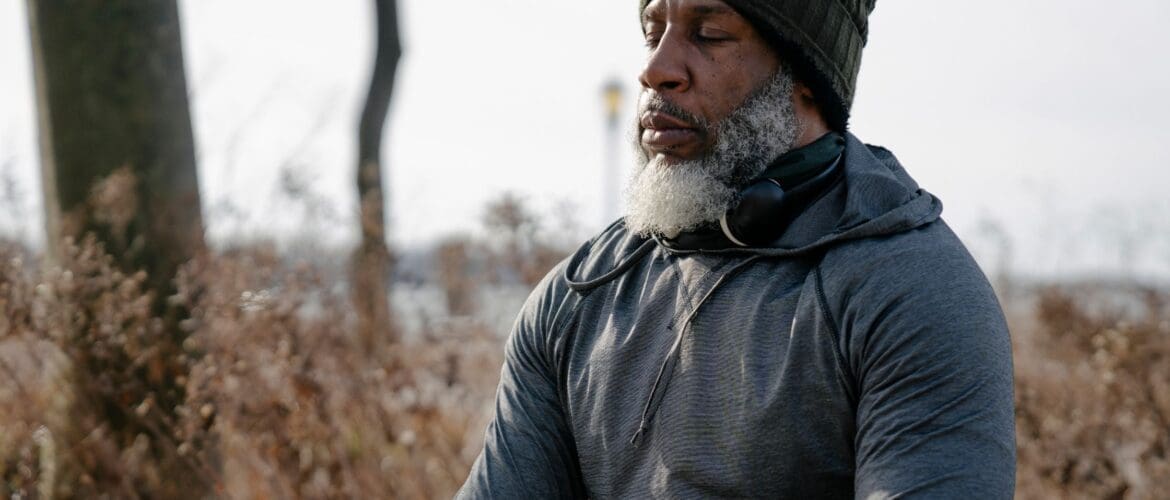Why Men Need Vulnerable Spaces: The Power of Mindfulness and Nervous System Regulation
- June 10, 2024
- Posted by: Danielle Brunson
- Category: Body Mindfulness

In a world that often expects men to be stoic and strong, the idea of vulnerability can seem foreign or even uncomfortable. However, creating vulnerable spaces for men is essential for mental and physical health. Let’s explore why men need these spaces and how mindfulness and nervous system regulation can help.
The Importance of Vulnerable Spaces
Vulnerable spaces are environments where individuals feel safe to express their emotions, share personal experiences, and seek support without judgment. For men, these spaces can be transformative for several reasons:
- Emotional Health: Society often discourages men from showing emotions, leading to suppressed feelings and emotional stress. Vulnerable spaces allow men to express their emotions, reducing the risk of mental health issues like depression and anxiety.
- Building Connections: Sharing vulnerabilities fosters deeper connections and stronger relationships. When men open up, they can form more meaningful bonds with others, promoting a sense of belonging and community.
- Reducing Stress: Bottling up emotions can lead to chronic stress, which negatively impacts physical health. Vulnerable spaces provide an outlet for releasing this pent-up stress, contributing to overall well-being.
Mindfulness: A Tool for Vulnerability
Mindfulness is the practice of being present in the moment and observing thoughts and feelings without judgment. This practice can be especially beneficial for men in vulnerable spaces:
- Self-Awareness: Mindfulness helps men become more aware of their emotions and reactions. By understanding their feelings, they can better express and manage them.
- Acceptance: Mindfulness encourages acceptance of all emotions, including those society deems “unmanly” like sadness or fear. This acceptance reduces the shame associated with vulnerability.
- Stress Reduction: Mindfulness practices, such as meditation and deep breathing, can reduce stress by calming the nervous system. This makes it easier for men to open up and be vulnerable.
The Nervous System and Vulnerability
Our nervous system plays a crucial role in how we respond to stress and vulnerability. Here’s how it works:
- Fight-or-Flight Response: This is the body’s automatic response to perceived threats, preparing us to either fight or flee. For many men, expressing vulnerability can trigger this response, making it difficult to open up.
- Parasympathetic Nervous System: This part of the nervous system helps calm the body after stress. Activating the parasympathetic nervous system through mindfulness techniques can make it easier for men to feel safe and be vulnerable.
How Mindfulness Regulates the Nervous System
Practicing mindfulness can help regulate the nervous system and create a conducive environment for vulnerability:
- Deep Breathing: Slow, deep breaths activate the parasympathetic nervous system, reducing the fight-or-flight response and promoting relaxation.
- Meditation: Regular meditation practice can lower cortisol levels (the stress hormone) and increase feelings of calm and safety, making it easier to express emotions.
- Body Scan: This mindfulness technique involves paying attention to different parts of the body, helping to release physical tension and promote a sense of grounding.
Creating Vulnerable Spaces for Men
To support men’s emotional health, it’s important to create and maintain vulnerable spaces:
- Encourage Open Communication: Foster an environment where men feel safe to talk about their feelings and experiences without fear of judgment.
- Provide Support Groups: Organized support groups can offer a structured environment for men to share and connect with others facing similar challenges.
- Promote Mindfulness Practices: Introduce mindfulness techniques in these spaces to help men regulate their nervous systems and feel more comfortable being vulnerable.
Conclusion
Vulnerable spaces are crucial for men’s mental and physical health. By integrating mindfulness practices and understanding the role of the nervous system, men can learn to express their emotions safely and effectively. Creating these spaces not only benefits individual men but also fosters healthier communities and stronger relationships. It’s time to redefine strength and embrace the power of vulnerability.
